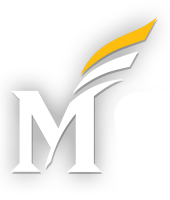The Yupik Project aims to support the Yupik-speaking community in their language revitalization goals, and contribute to the fields of formal linguistics, documentary linguistics, and computer science. You can view a short video description of part of the project here.
The project consists of several main parts:
- Improving description and documentation of the language: A more complete description of the language aids in the development of pedagogical materials in Yupik and benefits language science. Further documentation of conversations and stories adds to a growing corpus of Yupik that can be accessed by speakers, learners, and researchers for a variety of purposes. Current documentation is focused primarily on temporal contrasts.
- Reciprocal training with Yupik speakers (‘Community Linguists’): sharing knowledge of language documentation and revitalization techniques and skills with the speakers, and learning about the speakers’ ways of knowing. The aim of this work is to build capacity in the community for reaching language revitalization goals and to improve researchers’ understanding of Yupik epistemologies.
- Creating computer tools for Yupik speakers and researchers: Yupik speakers have asked for technologies like spell check, autocorrect/autocomplete, text-to-speech, etc. In order to build these technologies, we need foundational tools like a reliable and accurate morphological analyzer. We are also making resources like the existing Yupik-English dictionary (which most speakers don’t have access to) available in a searchable web format.
- Digitization of existing resources in and about Yupik: Converting pedagogical materials, stories, and other documents in Yupik to searchable PDFs allows speakers, teachers, and learners to access these materials more easily (most of them are currently in the Alaska Native Language Archive in Fairbanks). This also allows us to build a searchable corpus of Yupik sentences. Researchers looking for particular phenomena in the language can search the corpus, and it can be used to train computer programs that we are building to analyze the language.
The project is currently supported (2022-2027) by an NSF Faculty Early Career Development Award (#BCS 2142340): “CAREER: Documenting temporal contrasts in an endangered language via community linguistics” and (2018-2023) a pair of collaborative NSF Documenting Endangered Languages Grants (#BCS 1760977/1761680): “Navigating the New Arctic: Collaborative Research: Integrating Language Documentation and Computational Tools for Yupik, an Alaska Native Language” (a collaborative grant with Prof. Lane Schwartz at the University of Illinois Urbana-Champaign). This work has also been supported at George Mason by a Mathy Junior Faculty Award in the Arts and Humanities and a College of Humanities and Social Sciences Faculty Research and Development Award.
